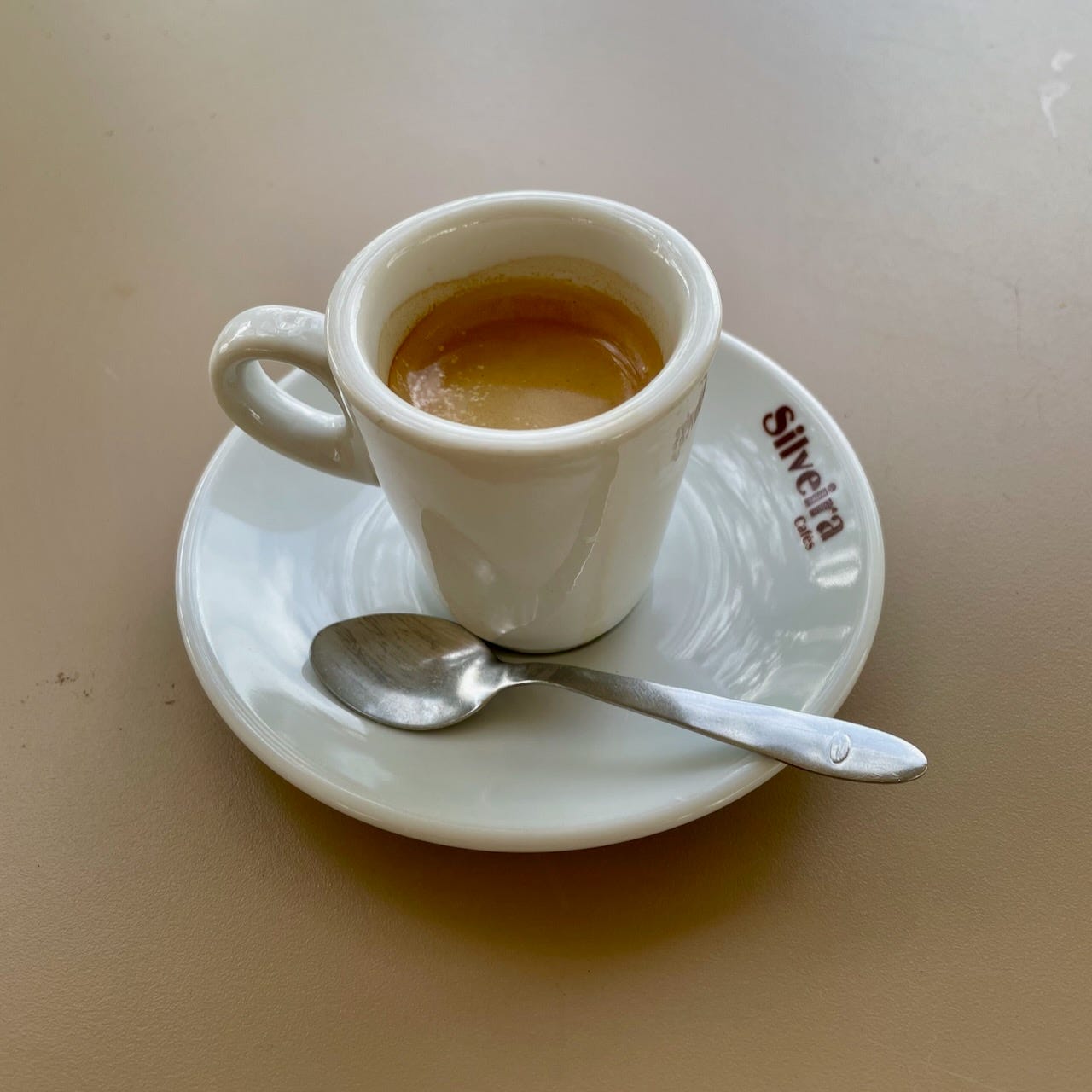I Only Have You
Politeness and formality in European languages
Something that has long fascinated me, both as a professional linguist and as a language learner, is the concept of politeness, and its inverse, impoliteness. Now, there are many ways to talk about politeness, and linguists have some rather specialized ones, which I may go into some other time. But today I want to talk about something fairly simple that’s fundamental to politeness. I’ll tell you what it is in a moment.
Let’s consider this simple sentence:
Do you want some coffee?
You could say that this question could be made more polite with the substitution of “would you like” for “do you want”, and that would of course be true. But if we try to translate this sentence into another European language—say, French, Spanish, or German—then an even more important issue comes up: How do we translate “you”?
English, for the past five hundred years or so, has had only one way to say “you”, which is, well, “you”. Prior to that, it had two pronouns, “thou” and “you”, the former being used when speaking to one person (second person singular), and the latter used for speaking to more than one person (second person plural). But around the time of Shakespeare, “you” started being generalized to cover both functions. Had this not happened, today we would say things like, “Hey, Gus, wouldst thou like a Budweiser?”1
So English only has “you”. But most European languages didn’t merge the two forms like English did. Thus, for the difference that some Americans might express as “you” vs. “you guys”,2 in German they say du and ihr; in French they say tu and vous; in Italian they say tu and voi; and in Spanish they say tú and vosotros. Except it gets more complicated, and I’m not even talking about the fact that verbs are always inflected to match the pronoun (tú eres, vosotros sois, etc.)—I won’t go into that here, since I want to stretch your brain but not break it.
How does it get more complicated? Well, over the centuries, speakers of many of these languages developed a way to show politeness and respect for the person they were talking to by using a different word for “you”. For example, in Spanish, if you want to show respect for the person you are talking to, instead of calling that person tú, you use usted. And if you are addressing more than one person and want to show respect, you use ustedes. So in Peninsular Spanish (what they speak in Europe), there are four ways to say “you”: tú, usted, vosotros, and ustedes. However, due to historical processes I won’t go into, in most of Latin America, this has been simplified by eliminating vosotros, so they have only tú, usted, and ustedes. In other words, in Mexico, you can’t show respect for multiple people—at least not through pronouns. You could perhaps buy them a round of chelas.
Other European languages have developed slightly different systems. French, for example, in addition to using tu (second person singular) and vous (second person plural), allows speakers to say vous to just one person, as a sign of respect. This can hypothetically lead to confusion about whether someone speaking French is addressing a group or just one (respected) person, though in practice it is usually clear. Meanwhile, in Italian, they use the pronoun lei, meaning “she”, to show respect to one person, such that you would essentially say “Mister Montalbano, would she like a Budweiser?” I promise you that the Italians do not see this as strange.
German is different in yet another way. In German, you can say du, ihr, or Sie. Ignoring the capitalization, this last term can unfortunately mean any of these: “she”, “her”, “they”, “them”, “you” (singular), or “you” (plural). Is this confusing? It certainly is to me. The verb forms help a bit, but not entirely.
Let me just offer an amuse-bouche involving Swedish before we come to the main course. In Swedish, they traditionally had a French-like system, where they said du and ni for second person singular and plural, respectively, but also used ni to be polite when speaking to a single person (I’m not sure what the Swedish knights said). However, during the mid-20th century, in a glorious fever of egalitarianism, the Swedes reversed the historical process and started calling everyone du, even the prime minister and the king. (Yes, this wonderfully egalitarian society still has a king. Go figure.) Now ni is used once again just to mean “you guys”, as it were.
Traveling down to Spain, we see a similar but much less radical shift. The Spanish have gradually been adopting a more informal manner with people, including strangers, such that it is not unusual for a waiter to ask what “you” want using tú. But they still have all four of the options I mentioned above, ready and waiting, if needed.
I had gotten pretty comfortable with this. And then I moved to Portugal.
Portuguese is historically and grammatically very close to Spanish. But boy, in terms of politeness and formality, is feels comparatively ancient. Modern Portuguese has only three pronouns meaning “you”: tu, você, and vocês. But if you want to engage successfully and politely with people in Portuguese, you have to get used to the idea that there are at least four levels of formality in terms of how to say “you” to someone.
Let’s go back to our original sentence. In Portuguese, to close friends and children, you will say (Tu) queres café?, where you can leave off the tu due to the –s ending on the verb. (Also, you might not want to offer coffee to children, for obvious reasons.) But to someone with whom you want to be more polite, you might say (Você) quer café? Here, whether you leave off the você will depend a lot on whether you are Portuguese or Brazilian, since it is considered a bit rude to actually say the word você in Portugal (one of my sources said it “sounds snobbish”). Should you be dealing with an older person, or someone to whom you want to show a great deal of respect, you will say O senhor quer café? or A senhora quer café?, depending on the gender of the person you are addressing. In other words, “Would the sir/madam like coffee?”3 I hear all three of these levels of formality every day.
But it doesn’t end there. Because the Portuguese have developed a distaste for the actual word você, they have developed another way of saying “you”, which is to say your own name to you: “the Robert”, or “the Sheila”. So you might say something like A Paula quer café?; that is, you say to Paula’s face, “Does the Paula want coffee?” It’s not a big jump to “Would the Gus like a brewski?”
As an aside, it has occurred to me that one advantage of this is that it really helps you to remember a person’s name. If you say “a Mariana” twenty times in a conversation, you will probably remember Mariana’s name forever. And in fact, I find that the Portuguese are really good with names.
It gets even more complicated when people want to show extreme levels of respect for someone. I was recently at the farewell concert of the legendary Portuguese guitarist António Chainho, at which the mayor of Lisbon gave a speech. In this speech, the mayor kept addressing Chainho directly as o mestre, or “the master”. He used this at least fifteen times, in contexts such as “The Master plays and we listen, enraptured, to the Master.” This sounded very strange to me, but let’s remember that in some contexts, in English we also say things like “your honor” and “your excellency”.
So in sum, in Portugal, if you want to ask someone named Miguel whether he wants coffee, you have to make a conscious choice among these options:
(Tu) queres café?
(Você) quer café?
O Miguel quer café?
O senhor quer café?
The good news is that if you say, Quer café?, it’s ambiguous and thus not clear just how formal (and hence polite) you are being. The problem is that people will generally assume the lowest level of formality.
Is it necessary to learn all of this? Yes, because if you don’t learn to negotiate these terms of respect, you are guaranteed to be less polite than you want to be. Is it worth it? Yes, because the coffee in Portugal is amazing.
If you really wanted to screw with people, you could tell them that your pronouns are “thou/thee/thy”. (Though this would not really be legit, since when you tell someone your pronouns, you are referring to third person singular pronouns.)
Other options provided by certain US dialects are “youse”, “yins”, and “y’all”.
In Portuguese, o and a (pronounced “ooh” and “aah”) are the two forms of the singular definite article, equivalent to Spanish el and la, meaning “the”.







I’m in awe of your nuanced understanding, it’s not easy to pick up the literally unspoken rules. One added perspective is on “você” sounding snobbish- older people would say “você é estrebaria”, meaning, “você is what you use in the horse stables”. On a meta-level: “figure out how to address me, you don’t get to default to the simplest norm”. So not only it’s complicated but there is a high social cost to getting it wrong… so I would use the word “snobbish“ but in its original meaning, “sans noblesse” ☺️ Apologies if that complicates the Portuguese life further
Thanks for this piece1 Turkish, like German, has a formal version of "you." When I first learned English, I found it challenging to adjust to a language without this distinction. But now, after living in English-speaking countries for 30 years, I find it difficult to use the formal "you" when I switch back to Turkish.